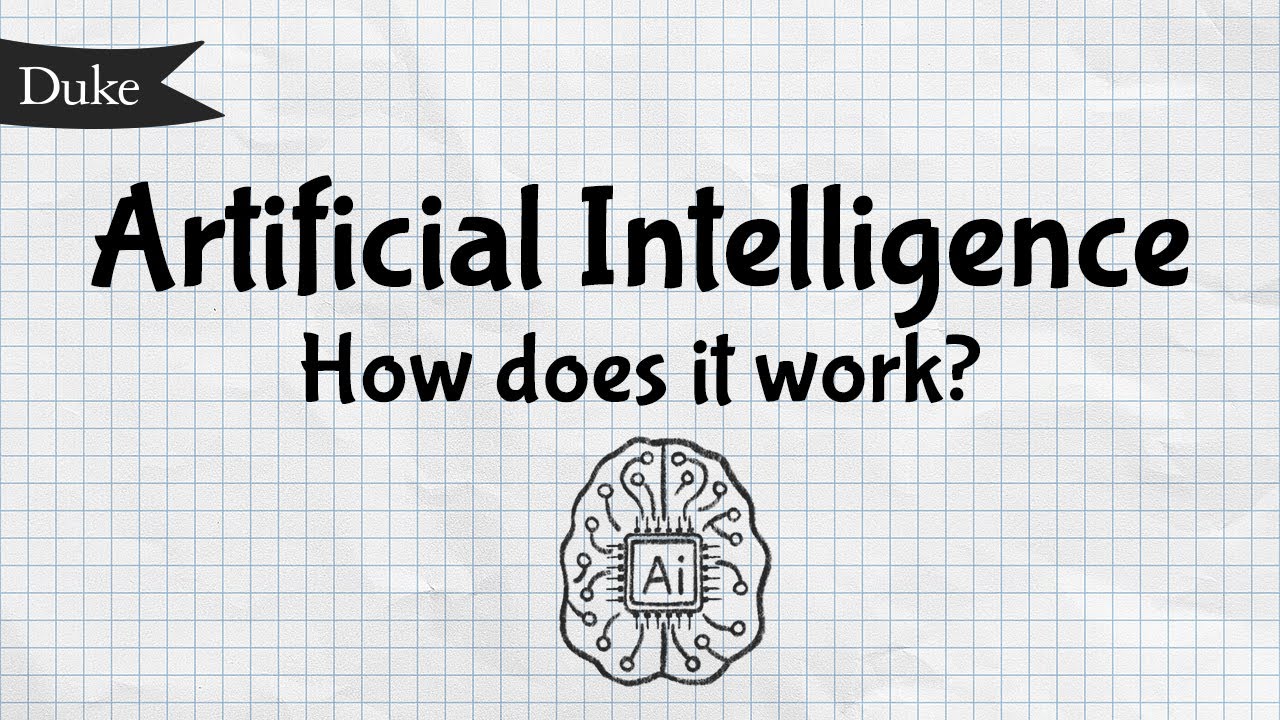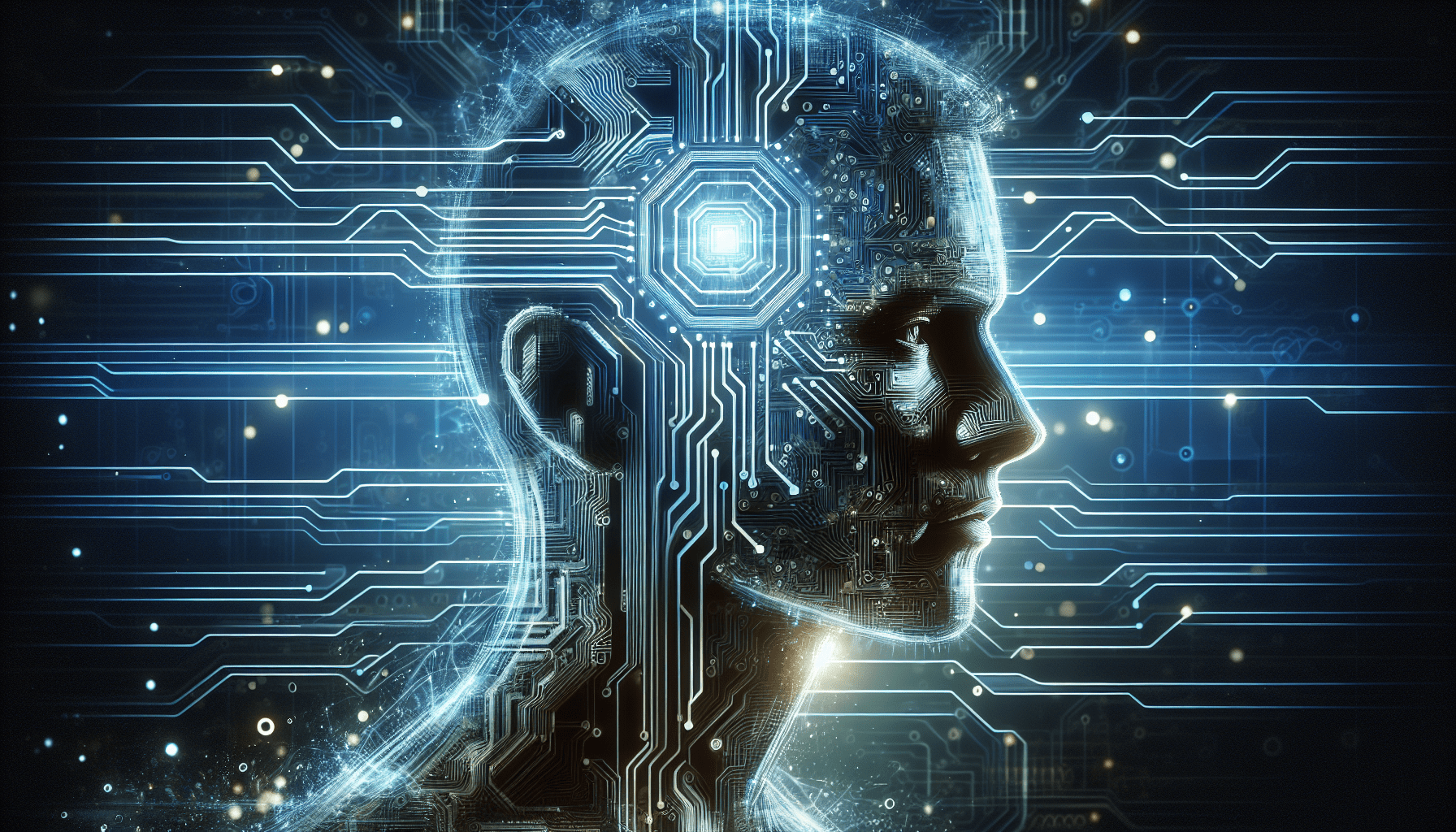Have you ever wondered what exactly artificial intelligence is and what it can do? While science fiction has introduced us to the idea of super-powered robots and hyper-intelligent devices, it’s important to understand the reality of AI beyond Hollywood. Artificial intelligence involves using computers to perform tasks that typically require human intelligence, such as processing visual information, understanding spoken language, and identifying patterns. Duke University, established in 1924, is a renowned institution for education, research, and patient care, and their Quick Learner video on AI aims to shed light on this fascinating field of computer science. While AI algorithms can make predictions and recommendations based on large datasets, it’s important to note that today’s best AI technology still cannot match the complexity and adaptability of the human brain.
What is Artificial Intelligence?

Definition of Artificial Intelligence
Artificial intelligence (AI) refers to the use of computers and machines to simulate human intelligence and perform tasks that typically require human intelligence. It involves developing algorithms and models that enable computers to understand, learn, and think in a similar manner as humans.
Capabilities of Artificial Intelligence
AI encompasses a wide range of capabilities that mimic human intelligence. These include:
Visual perception and recognition: AI systems can process and interpret visual data, such as images and videos, to identify and understand objects and patterns.
Natural language understanding and processing: AI can analyze and understand human language, both written and spoken, allowing for automated language translation, text analysis, and voice assistants.
Pattern identification and analysis: AI algorithms can identify patterns in large datasets, making it useful for tasks like anomaly detection, fraud detection, market analysis, and predictive modelling.
Problem-solving and decision-making: AI systems can analyze complex problems, evaluate different options, and make decisions based on the available data, enabling automation of tasks that require critical thinking.
Recommendation systems: AI algorithms can analyze user preferences and behavior patterns to generate personalized recommendations for products, services, or content, improving user experience and engagement.

Branches of Artificial Intelligence
AI is a vast domain, consisting of various branches that focus on different aspects of simulating human intelligence. Some prominent branches of AI include:
Machine Learning: Machine learning is a subfield of AI that focuses on developing algorithms that enable computers to learn from data and improve performance without being explicitly programmed. It is widely used in various applications, including image recognition, natural language processing, and autonomous vehicles.
Neural Networks: Neural networks are computational models inspired by the human brain’s structure and function. They are designed to process and analyze complex patterns by using interconnected layers of artificial neurons. Neural networks are often used in tasks like image and speech recognition.
Natural Language Processing: Natural language processing (NLP) deals with the interaction between computers and human language. It involves tasks such as language understanding, language generation, sentiment analysis, and machine translation. NLP is essential for chatbots, virtual assistants, and language-based applications.
Computer Vision: Computer vision focuses on enabling computers to perceive, analyze, and understand visual data from the real world. It involves tasks like object recognition, image segmentation, and visual tracking. Computer vision has applications in autonomous vehicles, surveillance systems, and medical imaging.
Expert Systems: Expert systems are AI systems that possess specialized knowledge in a specific domain. These systems use rule-based or logical reasoning to solve complex problems and make decisions. Expert systems have been used for tasks like medical diagnosis, financial analysis, and troubleshooting.

Role of Data in Artificial Intelligence
Data plays a crucial role in AI development and performance. Key aspects of the role of data in AI include:
Importance of large data sets: AI algorithms require extensive and diverse datasets to learn patterns, extract information, and make accurate predictions or decisions. The quality, quantity, and diversity of data influence the performance and effectiveness of AI systems.
Training AI algorithms: Data is used to train AI algorithms by providing examples and feedback. Through iterative processes, AI models learn from the data and adjust their parameters to improve performance.
Identifying patterns and making predictions: AI algorithms analyze patterns in data to identify correlations, trends, and dependencies. This analysis helps in making predictions or providing insights for various applications, such as forecasting demand, predicting customer behavior, or detecting anomalies.
Improving recommendations and actions: AI systems can leverage data to create personalized recommendations and actions based on user preferences, behavior, and historical data. By continuously analyzing data, AI algorithms can adapt and improve recommendations over time.

Current State of Artificial Intelligence
AI has already made significant advancements and is being applied across various fields. Some notable areas where AI is currently deployed include:
Healthcare: AI is used in medical image analysis, disease diagnosis, drug discovery, personalized medicine, and telemedicine. It aids in improving medical imaging accuracy, identifying potential health risks, and optimizing treatment plans.
Finance: AI algorithms are employed in fraud detection, algorithmic trading, credit scoring, risk assessment, and portfolio management. AI helps financial institutions automate processes, detect anomalies, and make data-driven decisions.
Transportation: AI is utilized in autonomous vehicles, traffic management systems, route optimization, and predictive maintenance. It aims to enhance safety, efficiency, and convenience in transportation.
Manufacturing: AI is employed in industrial automation, predictive maintenance, quality control, and supply chain optimization. AI technologies optimize production processes, reduce downtime, and increase productivity.
Customer service: AI-powered chatbots and virtual assistants are used in customer support and engagement. They provide quick responses to customer queries, offer personalized recommendations, and improve customer experience.
Education: AI is applied in intelligent tutoring systems, personalized learning platforms, and automated grading. It helps in adaptive learning, content recommendation, and providing feedback to students.
Despite these advancements, there are still limitations and challenges in AI development. Some of these include:
Lack of common sense and contextual understanding: AI systems often struggle to understand context, common sense, and real-world nuances that humans take for granted. This limitation impacts their ability to perform tasks that require human-like reasoning.
Data bias and ethical concerns: AI algorithms heavily rely on the data they are trained on, which can introduce biases and unfairness. Addressing bias and ethical considerations is a crucial challenge in AI development to ensure fairness, transparency, and accountability.
Security and privacy: As AI systems become more integrated into our lives, ensuring the security and privacy of user data becomes a significant concern. Protecting sensitive information and preventing misuse or unauthorized access to AI systems is of utmost importance.
Adoption and acceptance: Widespread adoption and acceptance of AI technologies require addressing concerns related to job displacement, human-AI collaboration, and the societal impact of automation. Encouraging education, upskilling, and inclusive policies is crucial for successful integration of AI.
The future of AI holds immense potential and raises important ethical considerations for society. Advances in AI research may lead to breakthroughs in various areas, including:
Healthcare: AI may enable more accurate diagnostics, personalized treatment plans, and drug discovery. It could assist in early disease detection, remote patient monitoring, and optimizing healthcare delivery.
Environmental sustainability: AI can contribute to tackling environmental challenges by optimizing energy usage, predicting climate patterns, and developing more sustainable practices in industries like agriculture and transportation.
Robotics and automation: AI-powered robots may become more advanced, allowing for automated tasks in industries like manufacturing, logistics, and healthcare. This could increase efficiency, reduce costs, and improve safety.
Assistive technology: AI has the potential to enhance accessibility for individuals with disabilities by developing intelligent assistive devices, adaptive interfaces, and communication aids.
Scientific research: AI can assist scientists in analyzing vast amounts of complex data, accelerating discoveries in fields like astronomy, genomics, materials science, and drug development.
In conclusion, artificial intelligence is a rapidly evolving field that aims to emulate human intelligence using computers. It has diverse capabilities, ranging from visual perception and natural language understanding to problem-solving and decision-making. While AI has made significant advancements, it still has limitations compared to human intelligence. The future of AI holds immense potential but also raises important ethical considerations for society. As technology continues to progress, the relationship between AI and human intelligence will be crucial for shaping the future.







Leave a Reply